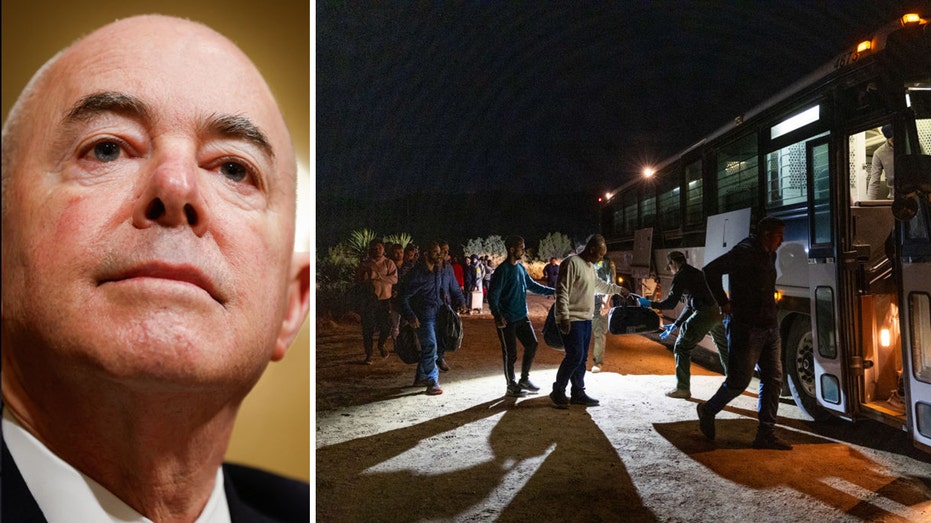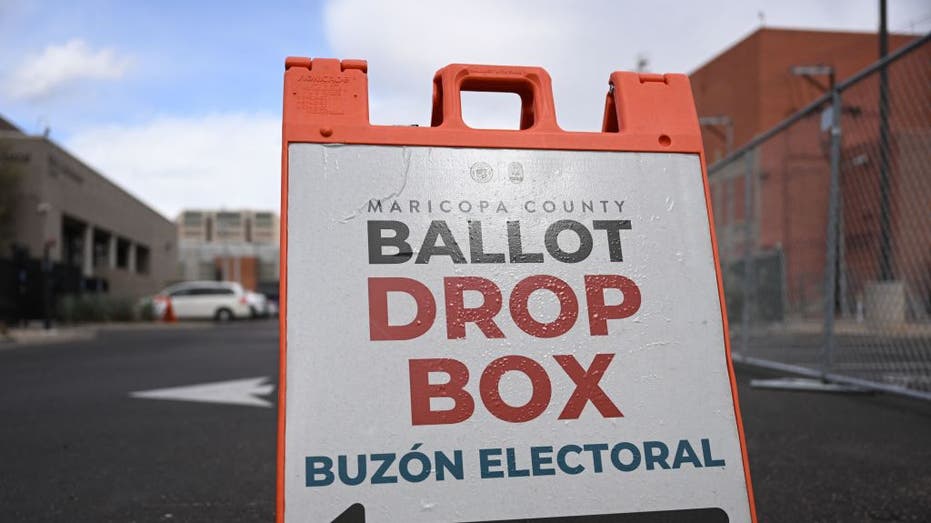As Gaza war drags past 1 year mark, hope fades for a deal to bring hostages home soon

For a year now, freeing the hostages taken by Hamas has been a top goal for Israel, but 101 still remain unaccounted for. Hope of a deal to get them home in the foreseeable future is waning quickly. Of the 240 people taken hostage from Israel by Hamas on Oct. 7, 2023, 117 have either been freed during temporary truces or rescued during Israel Defense Forces (IDF) missions. Dozens of the 101 who have not been freed are believed to be dead. Four Americans – Keith Siegel, 65, Sagui Dekel-Chen, 36, Omer Neutra, 22, and Edan Alexander, 21 – remain trapped among them. Many hostage families have lost faith in the U.S. and Israeli governments. “We don’t believe that Prime Minister [Benjamin] Netanyahu’s priority is to bring home the hostages,” Hannaha Siegel, Keith Siegel’s niece, told CNN on Monday. “The ability to negotiate with [Hamas Leader Yaya] Sinwar to try to get the hostages that remain alive out is extremely unlikely,” said Mark Schwartz, a retired Army general and former U.S. security coordinator for Israel and the Palestinian Authority. “There’s no strategic benefit at all for Hamas. The hostages are useful human shields and getting several hundred Palestinians out of prisons, big deal,” he said, referring to a potential prisoner exchange. “That’s not going to extend the life of Hamas leadership that resides inside Gaza.” KAMALA HARRIS COURTS DISILLUSIONED ARAB AMERICANS OVER JEWISH VOTERS, RECORDS SHOW President Biden and Vice President Kamala Harris have for months implored Netanyahu to agree to a cease-fire deal that would see the hostages returned home. However, as war spread from Gaza to Lebanon to Tel Aviv – and with Israel considering an aggressive response to Iran’s most recent missile attack – U.S. calls for a cease-fire increasingly rattle around an empty echo chamber. “The mood is poor right now,” said Michael Makovsky, president of the Jewish Institute for National Security of America. “What’s in Sinwar’s interest to make a deal? Hamas’ military capability is pretty much destroyed. I don’t think he thinks he’s ever going to get out alive. I don’t think he necessarily wants to leave Gaza alive anyway.” Sinwar, Hamas’ shadowy leader and the architect of the Oct. 7 attacks, is believed to be alive and still committed to the destruction of Israel. HARRIS WON’T SAY WHETHER BIDEN ADMIN HAS ANY ‘SWAY’ OVER NETANYAHU On the eve of the anniversary of the attacks, Netanyahu held his first meeting on the plight of the hostages in a month. According to The Times of Israel, his officials warned him intel on the hostages was quickly drying up. They reportedly told him they believed half of the hostages remained alive and were subject to increasingly squalid conditions. They also warned that Hamas militants were under orders to execute them if they felt the IDF was closing in on their position. Hamas executed six hostages in a tunnel in Rafah in August as the IDF drew near. “You want to hold out hope for someone to be rescued, but for a hostage deal, it’s not looking good,” said Makovsky. “I think Netanyahu should have demonstrated more sympathy towards the hostages early on, and then it became kind of entrenched that half the Israeli electorate didn’t like him anyway, so he didn’t care. “In fairness to him, he was the prime minister that cut what turned out to be a terrible deal – which they released over 1,000 Palestinian prisoners – for one Israeli hostage in Gaza,” added Makovsky. “One of those prisoners was Sinwar.” In 2011, Israel agreed to an exchange where it released 1,027 Palestinian prisoners – including Sinwar – for Israeli soldier Gilad Shalit. Sinwar was 22 years into four life sentences he received in Israel for orchestrating the killing of two Israeli soldiers and four Palestinians he believed to be collaborators in 1989. Gershon Baskin, who led negotiations on that deal, said he believes Hamas is ready to strike an agreement – and it is not the one U.S. officials have worked on for months. “It would end the war in three weeks with an Israeli withdrawal from Gaza. They would release and return all the hostages, military, civilian, alive and dead, and there would be an agreed-upon release of Palestinian prisoners. Hamas has agreed to me in writing that they would transfer the governance in Gaza to a civilian, technocratic, professional government, which they will not be part of.” Critics of such ideas say they fall short of eliminating Hamas, which could rebuild itself and once again threaten Israel. Baskin does not work on behalf of Israel or Hamas in any official capacity, but he said U.S. officials are aware of the offer and need to pressure Netanyahu and Hamas to work it out between themselves. In May, Biden unveiled a three-phase deal that would see Hamas return 18–32 hostages in exchange for 800 Palestinian prisoners and a six-week pause in fighting. “It’s a bad deal, and I know that the American leadership – [CIA Director Bill] Burns and [White House Middle East coordinator Brett] McGurk and others have invested themselves deeply in these negotiations, but they need to simply recognize that it’s not going anywhere,” Baskin said. “It’s a dead deal, and they need to pick up another deal that might actually work.” Efforts to reach the White House and the Israeli government for comment for purposes of this story were unsuccessful at press time.
Ratan Tata in critical condition, intensive care in Mumbai hospital: Report

On Monday, Ratan Tata said that he was undergoing routine medical investigations due to his age and related medical conditions.
CONGO fever Dos and Don’ts: Jaipur woman dies after getting infected by deadly virus, check guidelines to follow

Symptoms of Congo fever include a sudden high fever, eye irritation, sensitivity to light, dizziness, and severe muscle pain.
Conservatives dismiss Biden parole limits on 500K migrants: ‘Optics-driven smokescreen’

The Biden administration’s decision to not renew parole for more than half a million migrants who came under a controversial migrant flight program was greeted with surprise by some when it was announced, but conservatives are warning it will not make much of a difference. “This move is yet another optics-driven smokescreen from the Biden-Harris administration,” House Homeland Security (DHS) Committee Chairman Mark Green said in a statement. The DHS confirmed last week that the administration will not extend the two-year parole status for migrants who came in via the parole processes for Cubans, Haitians, Nicaraguans and Venezuelans (CHNV) program. The program, established in 2022 and expanded in early 2023, allows migrants to receive travel authorization and parole for two years. BIDEN ADMIN WON’T EXTEND PAROLE FOR 500,000+ MIGRANTS IN US VIA CONTROVERSIAL FLIGHT PROGRAM It allows 30,000 in each month, and so far nearly 530,000 migrants have flown in under the program. However, the administration said those paroles will not be renewed. “As initially stated in the Federal Register notices, a grant of parole under these processes was for a temporary period of up to two years. This two-year period was intended to enable individuals to seek humanitarian relief or other immigration benefits for which they may be eligible, and to work and contribute to the United States,” a DHS spokesperson told Fox News Digital. “Those who do not have pending immigration benefits or who have not been granted an immigration benefit during their two-year parole period will need to depart the United States prior to the expiration of their authorized parole period or may be placed in removal proceedings after the period of parole expires,” they said. While the decision was greeted with disappointment by some immigration activists, conservatives have noted that Haitians and Venezuelans may in many cases be eligible for Temporary Protected Status (TPS) which was renewed by the Biden administration and protects from deportation. Venezuela was renewed for TPS last year, and Haiti was renewed this summer, meaning those who arrived before those redesignations are eligible. Cubans, meanwhile, can apply for green card status via the Cuban Adjustment Act. Nicaraguans do not have a clear pathway but may be able to apply for asylum. “There are numerous other ways these inadmissible aliens could be—and likely will be—allowed to stay, including through applying for asylum or Temporary Protected Status. Even if they don’t, however, given ICE’s low enforcement rates under this administration, most simply will not be priorities for removal,” Green said. NEW POLL REVEALS TRUMP HAS SIGNIFICANT LEAD ON IMMIGRATION, BORDER SECURITY IN KEY BATTLEGROUND STATE Gene Hamilton, vice president and general counsel of America First Legal — an organization that worked with more than a dozen states to sue the Biden administration over the program — was also skeptical of the impact of the decision not to renew parole. He noted that the administration has no plans to wind down the program itself, so more migrants will be coming in. He called it “political theater.” “We’re left with a situation where they’ve brought in all these people by the hundreds of thousands. They’re going to use TPS to allow them to stay here for as long as TPS is designated. And they’re not saying that they’re going to end this program in terms of bringing new people in and, of course, what that all amounts to is that none of these folks are going to be going home,” he told Fox News Digital. He said he believes that the administration is trying to “save face” on border-related issues and also suggested that he believes that the administration may be nervous about the ongoing legal battle over the program, given the wide use of parole by the administration. DHS DOCS REVEAL WHERE PAROLED MIGRANTS UNDER CONTROVERSIAL BIDEN FLIGHT PROGRAM ARE LANDING “If they get a poor decision from their perspective about the authority to bring in these aliens into the United States under parole, they’re going to be in a world of hurt. Because for them the abuse of the parole authority is really the end all, be all across the spectrum,” he said. Conservatives have long argued that the use of parole, which is limited by Congress to a case by case basis, for urgent humanitarian reasons or significant public benefit. “If they’re viewed as bringing people in and then renewing it indefinitely, it undermines the integrity of their arguments that this is only on a temporary basis,” Hamilton said. CLICK HERE FOR MORE IMMIGRATION COVERAGE Hamilton also argued that it is hard for even conservative administrations to deport migrants in many cases, given the refusal of some countries to take back their nationals, in addition to legal limits on TPS. Consequently, he said that under a Biden or Harris administration, he doubts that there will be a significant number of deportations of these migrants. “The chances are effectively zero,” he said. The move comes as the Biden administration has claimed its more recent policies at the southern border are working. Officials have pointed to a sharp drop in illegal encounters at the border since a presidential proclamation limiting entries in June. Officials say that since June 5, they have removed or returned more than 131,000 individuals to more than 140 countries, including operating more than 400 international repatriation flights. “Total removals and returns over the past year exceed removals and returns in any fiscal year since 2010 and a majority of all southwest border encounters during the past three fiscal years resulted in a removal, return, or expulsion,” DHS said in a release last month. Fox News’ Emma Woodhead contributed to this report.
‘It’s all about making that unique difference,’ says director Ryan Shah

The Mumbai-born and Los Angeles-based talent speaks about the need to create a positive difference through one’s work in the world of entertainment.
Breaking the Mold: BHP is Revolutionizing the Supercar Experience

At BHP, the belief is simple – a car isn’t just a vehicle. It’s an experience, a dream, a symbol of aspiration. It’s the embodiment of freedom and power.
Mental health support for toddlers has lagged in Texas. That’s now changing.

Lawmakers and child care centers are pushing for a statewide mental health system for toddlers.
Republicans raise $1 million targeting South Texas House races as Democrats invest elsewhere

Democrats have long held an edge in South Texas, but Republicans see an opening there to expand their House majority.
Arizona begins in-person and absentee voting, here’s what you need to know

Arizona began early voting Wednesday, marking yet another major swing state where voting is underway in the 2024 election. With Arizona now in the mix, 41 states and Washington, D.C., have launched some form of early voting. Here is everything you need to know to cast your ballot in the state. NEXT PRESIDENTIAL ADMINISTRATION HAS TO ‘GET SERIOUS’ ABOUT IMMIGRATION, SAY VOTERS IN KEY BATTLEGROUND STATE President Biden scored a crucial victory in Arizona in the last presidential election, flipping the state to the Democrats for the first time since 1996. Four years later, the state remains highly competitive. In late September, a Fox News Poll put Republican former President Trump at 50% and Democrat Vice President Harris at 47% among likely voters; an AARP survey around the same time had Trump two points ahead of Harris at 49%-47%. Maricopa County remains the most important battleground in the state. It is the fourth-highest populated county in the United States, represents more than 60% of Arizona’s registered voters and has a large suburban population, particularly in Mesa. Arizona is also home to a higher proportion of Hispanic voters than the rest of the country, and while they favored Biden by 19 points in the last election, they have shown signs of shifting toward Trump. Republicans are strongest in sparsely populated rural areas, particularly Mohave County (Trump +51) and Graham County (Trump +45), but they run up the margin most in the outer suburbs and exurban areas in Maricopa, Pinal and Pima counties. Arizona is a Toss Up on the Fox News Power Rankings. The Grand Canyon State will also vote for a new senator after independent Sen. Kyrsten Sinema decided not to run for re-election this year. The Republican candidate is Kari Lake, a former TV news host who ran unsuccessfully for governor in 2022. The Democrats have fielded Rep. Ruben Gallego, a former Marine who represents Arizona’s 3rd Congressional District. The Senate race is ranked Lean D. There are two competitive House districts in Arizona: This is a guide to registration and early voting. For comprehensive and up-to-date information on voter eligibility, processes and deadlines, please go to Vote.gov and the election website for Arizona. Arizona began absentee voting on Monday. Residents do not need to provide an excuse in order to receive a ballot. State officials must receive a ballot request by Oct. 25 and that ballot must be delivered to state officials by Nov. 5. Arizona offers early in-person voting beginning Oct. 9 and running through Nov. 1. Arizona residents were required to register to vote by Oct. 7.
RG Kar case: CBI cites blood stain, DNA report as evidence in chargesheet against accused Sanjay Roy

CBI mentioned the presence of Sanjay Roy’s DNA on the body of the victim, short hair, injuries on his body, blood stains of the victim, the CCTV footage, and the location of his mobile phone as per the call detail records as evidence against him.
